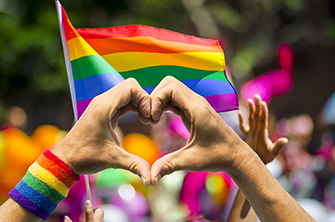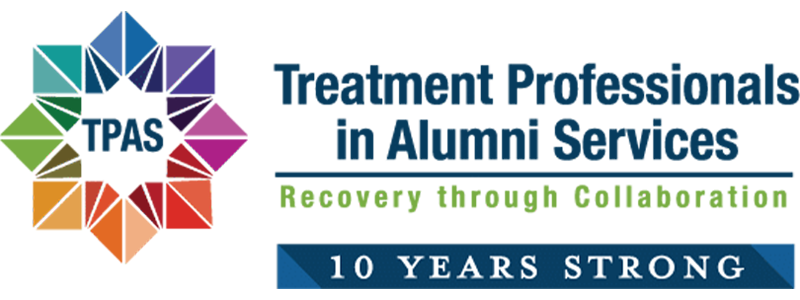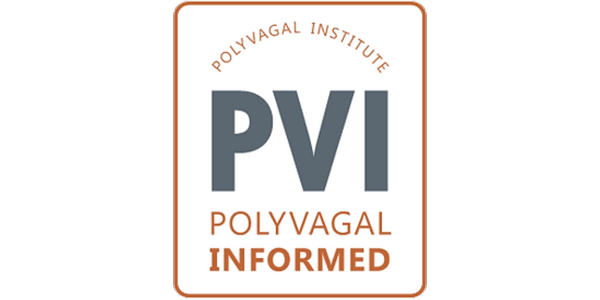Individuals who identify as part of the LGBTQ+ community are at much higher risk of developing substance use disorder than those who are not. As such, finding the right treatment center is extremely important in order to maintain a healthy, happy life in recovery. Keep reading to find out more about why the LGBTQ+ community suffers from Substance Use Disorder at higher rates, how to prevent it, how to find help, and when it’s time to get LGBTQ+ substance abuse treatment.
LGBTQ+ Substance Abuse Treatment: Statistics
According to the National Institute on Drug Abuse, people who identify as lesbian, gay, bisexual, transgender, or questioning (LGBTQ) often face social stigma, discrimination, and other challenges not encountered by people who identify as heterosexual. They also face a greater risk of harassment and violence. As a result of these and other stressors, sexual minorities are at increased risk for various behavioral health issues.
Other statistics include:
- Data from the 2018 National Survey on Drug Use and Health (NSDUH), suggests that substance use patterns reported by sexual minority adults (in this survey, sexual minority adults includes individuals who describe themselves as lesbian, gay, or bisexual) are higher compared to those reported by heterosexual adults.
- More than a third (37.6 percent) of sexual minority adults 18 and older reported past-year marijuana use, compared to 16.2% reported by the overall adult population.
- Past year opioid use (including misuse of prescription opioids or heroin use) was also higher with 9% of sexual minority adults aged 18 or older reporting use compared to 3.8% among the overall adult population.
- 9% of sexual minority adults aged 26 or older reported past-year misuse of prescription opioids—an increase from the 6.4% who reported misuse in 2017.
- The NSDUH survey also shows that since 2015, there were no significant changes in reported alcohol use disorder among sexual minority young adults (ages 18-25), with 12.4% reporting a disorder, compared to 10.1% in the overall population.
Why Is The Risk of Substance Abuse Higher in the LGBTQ+ Community?
Unfortunately, many marginalized groups find themselves to have higher rates of substance abuse than those who are not. This can be compounded if a person who identifies with the LGBTQ+ community is also part of another marginalized group, such as being a person of color or identifying as a female. Risk factors also go up higher due to bullying, underlying mental health disorders, and trauma that may have been experienced.
Bullying
According to the Human Rights Campaign, lesbian, gay, bisexual, transgender, and queer (LGBTQ) teens may be two times as likely to be bullied, excluded, or assaulted at school. In addition, they’re nearly 40 percent less likely to have an adult in their family to whom they can turn.
Children and teens who are bullied can experience many negative long-lasting effects. These can include:
- Social issues and problems trusting others
- Emotional issues
- Academic problems that can cause long-term consequences
- Physical issues
- Mental health issues
Underlying Mental Health Disorders
Having an underlying mental health disorder is one of the hallmark causes of addiction. Individuals who suffer from mental health disorders are more likely to turn to substance abuse to self-medicate their symptoms. Some examples of underlying mental health issues include:
- Anxiety
- Depression
- Bipolar disorder
- Eating disorders
- Obsessive-Compulsive Disorder
- Post-Traumatic Stress Disorder
- Borderline Personality Disorder
- Schizophrenia
People who identify as a member of the LGBTQ+ community often suffer from underlying mental health disorders due to the bullying and trauma they may have experienced due to the stigma surrounding the LGBTQ+ community. While the community and its supporters work tirelessly to break this stigma, it still exists and can severely impact its members.
Trauma
Members of the LGBTQ+ community often experience higher rates of trauma. This can be due to bullying, sexual abuse, emotional abuse, childhood abuse from family members, and much more. Trauma is one of the major underlying causes of substance abuse, and since it is experienced at higher rates in the LGBTQ+ community, the rates of substance abuse, therefore, are higher.
Preventing Substance Abuse in LGBTQ+ Youth
One of the most important parts of LGBTQ+ substance abuse treatment is preventing substance abuse in the first place. An individual who uses substances as a teen becomes much more likely to form a lifelong addiction than someone who has not. And since addiction rates are higher among the members of the LGBTQ+ community, it is important to stop it before it begins by providing early education, fostering acceptance, and providing a loving home.
Early Education
Childhood prevention and education regarding substance abuse are essential, and it is best to teach them as early as possible, well before the ages in which they will become exposed. This is so that the child can form good habits and thought processes as they become older, and when they are eventually exposed to substances as a teenager, they will be able to understand the risks more thoroughly.
Fostering Acceptance
The LGBTQ+ community is often marginalized and made to feel like they are “less-than”. This can lead to a negative self-image, which can lead to anxiety and depression, and ultimately leads to substance abuse. As such, teaching our LGBTQ+ children and teens positive self-love and self-acceptance is extremely important.
A Loving Home
Everything begins in the home, and everything that happens in the home will affect children for a lifetime. As such, providing a safe space for your LGBTQ+ child, teen, or adult family member will help tremendously with their risk for abusing substances. Members of the LGBTQ+ community often feel lonely, ostracised, or like they do not belong. By providing them with a safe place to talk and be themselves, it will do them a lifetime of positive good for their mental well-being.
Finding LGBTQ+ Friendly Substance Abuse Treatment
As unique and diverse as the LGBTQ community itself is, so is addiction and the ways people suffer from it. Not all substance abuse treatment centers are the same, which makes it important to find the right LGBTQ+ substance abuse treatment to help with these unique needs. This can be achieved by doing research, finding a center that provides individualized treatment for individualized needs, and a substance abuse treatment center that provides aftercare or lays out a path for aftercare.
Doing Research
One of the most beneficial things an individual can do regarding addiction, whether for themselves or for a loved one, is by doing as much research as possible. This means not only finding the right LGBTQ+ substance abuse treatment center, but by doing research on addiction itself.
Researching and learning about the following factors are all very important things to know while going through the recovery journey:
- Signs and symptoms of substance abuse or intoxication
- Overdose warning signs
- Learning about recovery and the recovery process
- Ways to support your loved one
- How to talk to your loved one
- How to form a support system
- Signs of being an enabler vs a supporter
Individualized Treatment Needs
As mentioned, addiction is very different for everybody who experiences it. Just like any other disease, addiction can manifest one way for one person and totally different for another person. That is why finding an LGBTQ+ substance abuse treatment center with individualized treatment is extremely important. Individualized treatment offers:
- A specialized path to recovery
- Treating specific underlying causes that are affecting the addiction
- Catering to specific needs and triggers
Many treatment centers specialize in a certain treatment modality, such as The 12-Steps or SMART Recovery. While these methods can be helpful, they don’t click with everybody who tries them. This can lead to relapse, overdose, and even death if treatment doesn’t stick early enough. This is one reason why recovery can often consist of multiple trips to a treatment center before it finally clicks for the individual. By finding a treatment center with individualized treatment, long-term recovery can come faster and more naturally.
Continuing Care
Treatment for addiction doesn’t end once the individual becomes sober and their 30, 60, or 90-day stay at the treatment center is over. In fact, it takes a lot of ongoing continuing care to maintain. This is especially true for individuals who identify as LGBTQ+. The need for ongoing support, therapy, and self-care are extremely important which makes continuing care an important part of LGBTQ+ substance abuse treatment.
When to Get Help
If you or someone you love is suffering from substance use disorder, it is extremely important to get help right away before it is too late. While there are many signs and symptoms of addiction, these are the most common ones you can keep an eye out for:
- Change in behavior. If you or your loved one’s behavior has drastically changed, this can be a sign of addiction. Becoming easily irritable, argumentative, energetic, or secretive are all-important behavioral signs to pay attention to.
- Change in physical appearance. When an individual is experiencing addiction, priorities change and that includes physical appearance. This can cause weight to dramatically gain or drop, for basic hygiene to fall to the wayside, track marks to appear, or open sores on the face due to picking can appear as well.
- Changes in social circles. Finding new friends is great, however, it can also be a sign of addiction. If you notice your loved one has been spending a lot of time with a new crowd and has abandoned their old crowd, or is isolating from other loved ones in favor of the new crowd, this should be a cause for concern. In addition, staying out late, going to new places or neighborhoods, and spending excessive amounts of time with the new crowd are red flags to be aware of.
About The Pointe Malibu Recovery Center
Specializing in the treatment of substance abuse in the LGBTQ community, the Pointe Malibu Recovery Center provides recovery solutions for drug and alcohol addiction, process addictions, mental health issues including depression and anxiety, co-occurring disorders, and chronic pain addictions.
Yes, you’re safe here. Our commitment to privacy is unwavering. In the spirit of compassion, professional ethics, and in accordance with HIPAA privacy protections, your recovery is the business of only those you personally choose to inform.
Why is it time for you to accept help? Because you’re here. You’re already looking for answers and a solution. Where accepting help once seemed a humiliating idea, the promise of relief that professional treatment may offer carries more importance. Yes, we are offering you a path to relief.





